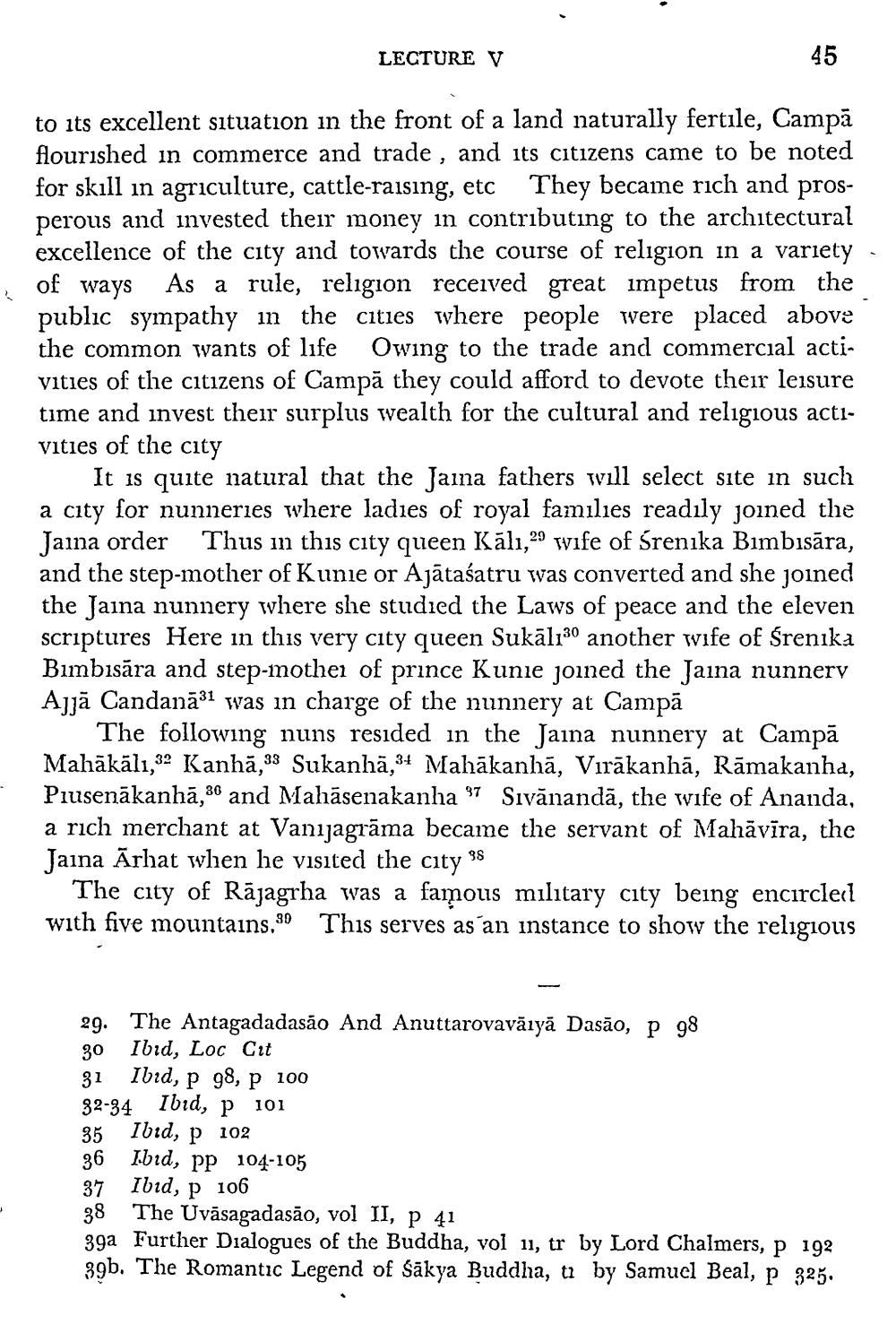________________
LECTURE V
45
to its excellent situation in the front of a land naturally fertile, Campā flourished in commerce and trade, and its citizens came to be noted for skill in agriculture, cattle-raising, etc They became rich and prosperous and invested their money in contributing to the architectural excellence of the city and towards the course of religion in a variety - of ways As a rule, religion received great impetus from the public sympathy in the cities where people were placed above the common wants of life Owing to the trade and commercial activities of the citizens of Campā they could afford to devote their leisure time and invest their surplus wealth for the cultural and religious activities of the city
It is quite natural that the Jaina fathers will select site in such a city for nunneries where ladies of royal families readily joined the Jaina order Thus in this city queen Kālı,29 wife of śrenika Bimbısāra, and the step-mother of Kunie or Ajātaśatru was converted and she joined the Jaina nunnery where she studied the Laws of peace and the eleven scriptures Here in this very city queen Sukālı30 another wife of Śrenika Bimbısāra and step-mother of prince Kunie joined the Jaina nunnery Ajjā Candanā31 was in charge of the nunnery at Campā
The following nuns resided in the Jaina nunnery at Campā Mahākālı,32 Kanhā,33 Sukanhā,34 Mahākanhā, Virākanhā, Rāmakanha, Piusenākanhā,30 and Mahāsenakanha 37 Sivānandā, the wife of Ananda, a rich merchant at Vanijagrāma became the servant of Mahāvīra, the Jaina Ārhat when he visited the city 38
The city of Rājagrha was a famous military city being encircleil with five mountains.30 This serves as an instance to show the religious
29. The Antagadadasão And Anuttarovavāıyā Dasão, p 98 30 Ibid, Loc Cit 31 Ibid, p 98, p 100 32-34 Ibid, p 101 35 Ibid, p 102 36 Ibid, pp 104-105 37 Ibid, p 106 38 The Uvāsagadasão, vol II, p. 41 39a Further Dialogues of the Buddha, vol 11, tr by Lord Chalmers, p 192 39b. The Romantic Legend of Sākya Buddha, ti by Samuel Beal, p 325.




